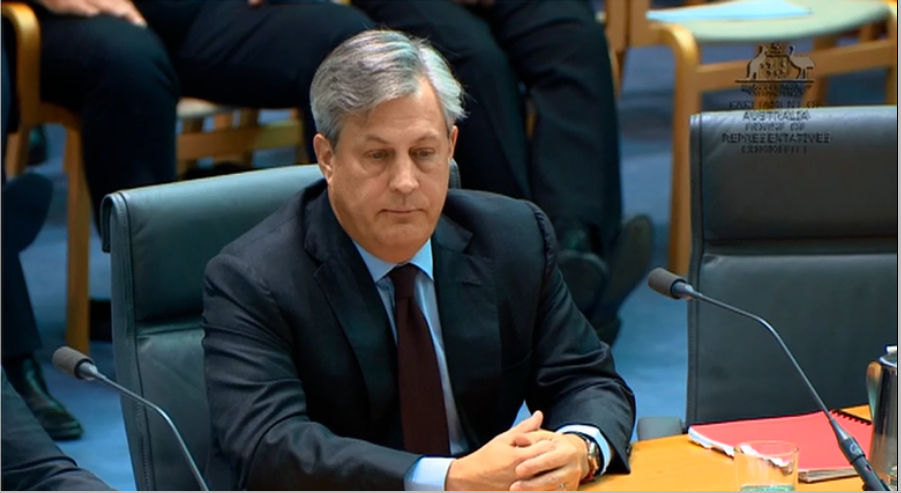Appearing before the standing committee on economics on Friday (8 March), Westpac chief executive Brian Hartzer expressed the major bank’s “surprise” at commissioner Kenneth Hayne’s proposed updated definition of a small business under the Australian Banking Association’s (ABA) Code of Banking Practice.
In the final report, the royal commission recommended that the ABA update the definition of small business in the banking code so that it applies to “any business or group employing fewer than 100 full-time equivalent employees, where the loan applied for is less than $5 million”.
The banking industry has been contending the $5 million threshold, saying that it could adversely impact credit availability and competition in the market.
“We continue to have the view based on the analysis we've done of customers that $3 million is the appropriate threshold. When you get above that, you start getting into more cases of really complex businesses,” Mr Hartzer said.
“Why don't we start with $3 million, which is a big improvement on what it's been, and then we can come back to it in a year or two's time and look at who's been excluded and see whether it should be adjusted on that basis?”
The Westpac CEO explained to Trevor Evans, Liberal Party member for Brisbane, that the major bank’s concern is that the threshold refers to “$5 million per loan” as opposed to “$5 million per total exposure of the company”.
“From our standpoint, we were surprised by that change in definition. We think it's quite an important change because, effectively, under the way it's written in the recommendation, that could mean that a company that has $20 million or $30 million of debt, which is not a small business, could come under that definition for a loan,” Mr Hartzer continued.
He said that this updated definition of small business would expose the banking industry to “extra risks that it’s not comfortable with”, which in turn could result in a “tightening up of credit for customers in that [small business] cohort and potentially an increase in the cost of credit”.
Smaller banks are even more concerned about the proposed updated definition than the majors, according to Mr Hartzer.
“We're not making this argument because we think it's going to make things better for us; we're arguing because we think it's going to make things significantly worse for small businesses who want to access credit. And that is the basis of the debate,” he continued.
The chief executive said that Westpac will “abide” by whatever is decided when it comes to updating the definition of small business.
“But I feel like we have an obligation to do the analysis on our customers and on the impact that that would have on credit and to make the argument,” he noted.
The Australian Small Business and Family Enterprise Ombudsman (ASBFEO), Kate Carnell, had told the royal commission that the $5 million threshold would cover “capital-intensive small businesses such as agriculture or manufacturing”.
The ASBFEO cited a finding from the Khoury review that such an increase would cover an additional 10,000 to 20,000 businesses, further noting that the revision would allow more businesses to fall within the remit of the new Australian Financial Complaints Authority (AFCA), which considers disputes regarding loans of up to $5 million.
Ms Carnell said earlier this month that the Ombudsman’s office is in discussions with the ABA on updating the banking code.
“Small businesses are the engine room of the Australian economy. They are growing all the time, and reform in this area is vital if we’re to support growth in this sector,” she said at the time.
“Banks now have the opportunity to show they’re serious about reform and are willing to change."
[Related: Westpac not worried about waning house prices]
 ;
;
